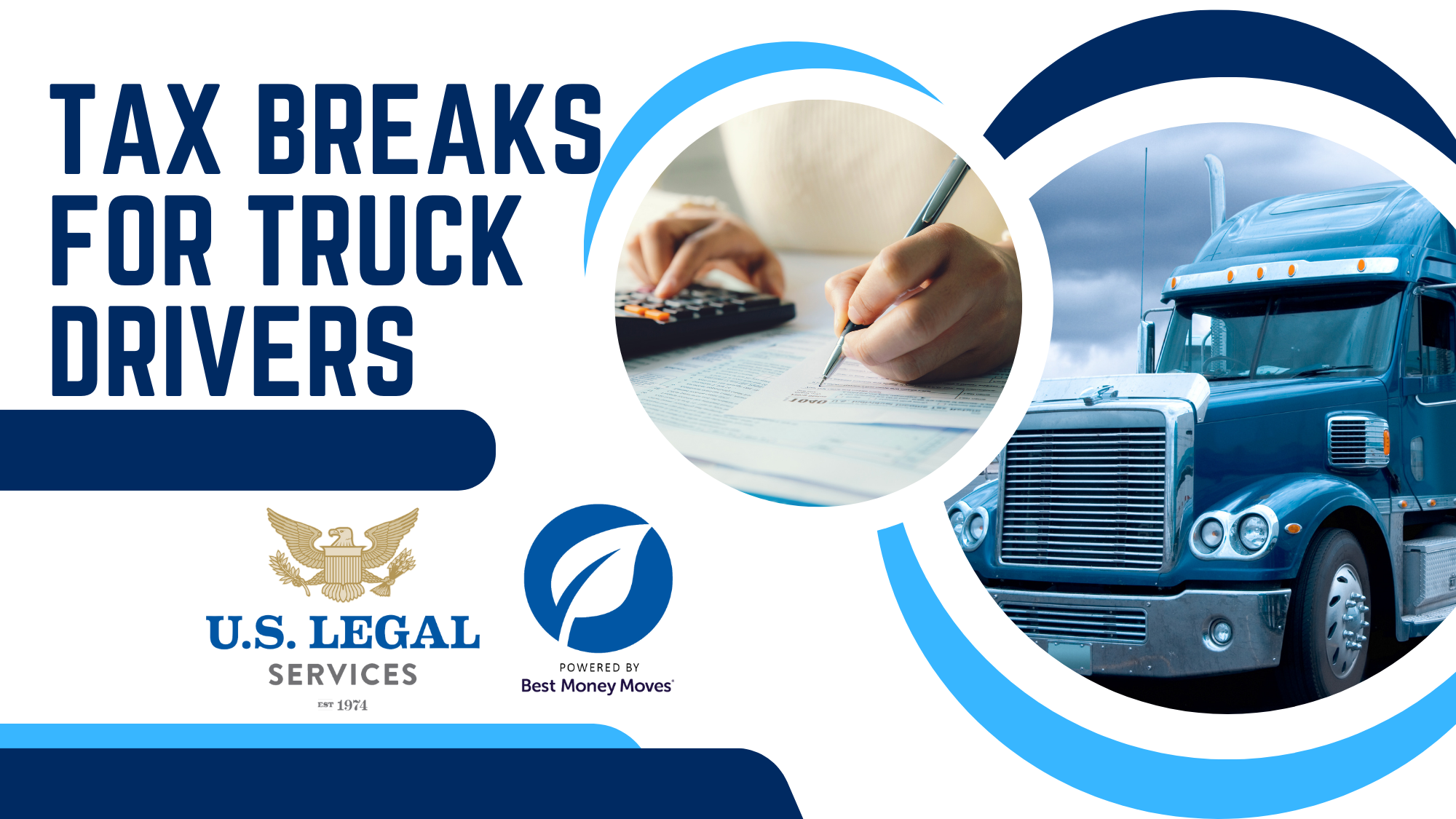Independent contractor truck drivers are constantly reaching for their wallet to pay for a considerable number of expenses. The good news is there are special tax deductions for truck drivers that can help you reclaim some of that cash.
U.S. Legal Services offers members outstanding tax help through our partner network of CPAs and Enrolled Agents (EAs). Here are some things our tax experts recommend you think about as you prepare your next federal or state tax return:
- Expenses while on the clock. Drivers should keep a detailed log of their travels so you can deduct the expenses associated with driving for business. These include 80% of meals, lodging, business use of cell phones, gas, maintenance, and vehicle service. There are apps that can be downloaded to easily track miles driven for work. Getting one will make your life easier.
- When you’re not on the road. Like other taxpayers, truck drivers can also deduct home office expenses, computers/electronics needed for work, excise taxes, licenses, continuing education, dispatch fees, insurance premiums, interest and dues.
- A few extra deductions. You may be eligible to take a tax deduction for medical expenses related to conditions that may impact the driver’s ability to drive. Drivers can also deduct business-related clothing and any tools/equipment purchases needed to execute their job, as well as the cost of setting up and maintaining a sleeping berth, including food-related items. You might also be eligible to deduct association or union dues, as long as they’re required for business or to help your trucking career. And, if you pay for training to obtain or maintain a CDL license or other certification, you may be able to deduct that cost as well.
- Know the per diem. Drivers can choose between deducting the actual expenses they pay out of pocket or selecting a per diem rate. The per diem is an allowance to cover lodging, meals and incidental expenses. You can find these the per diem rates for your location (city/county, state) here – https://www.gsa.gov/travel/plan-book/per-diem-rates
- Keep personal expenses separate. Keep in mind though, that you cannot deduct driving expenses if you use your truck or cell phone for personal use. You may also not deduct expenses for commuting to your job, reimbursed expenses, local meals, or everyday clothing.
- Drivers can depreciate the value of their truck. Many drivers choose to expense the depreciation by using IRC Section 179 rules and bonus depreciation. Again, check with a tax professional to see if this is best for you.
- Form 2290 Heavy Vehicle Use Tax. Anyone who has registered or is required to register a heavy highway motor vehicle with a taxable gross weight of 55,000 pounds or more in their name at the time of first use on the public highways during the reporting period must file Form 2290, Heavy Highway Vehicle Use Tax Return. Issues include claiming suspension of this tax if driving less than 5,000 miles, figuring and paying taxes if exceeding mileage use limits or the taxable gross weight of the vehicle changes enough to fall into a new category and potentially claiming credits.
The IRS has established the IRS Trucking Tax Center website for Form 2290 related questions and issues. Go to https://www.irs.gov/businesses/small-businesses-self-employed/trucking-tax-center
Remember, if you get a W-2 from your employer, you’re not an independent contractor. As an owner/operator, you should receive a 1099-NEC form for any year in which you were paid more than $600. Be sure to check with a tax professional, to see if you’re eligible for any other tax deductions.

